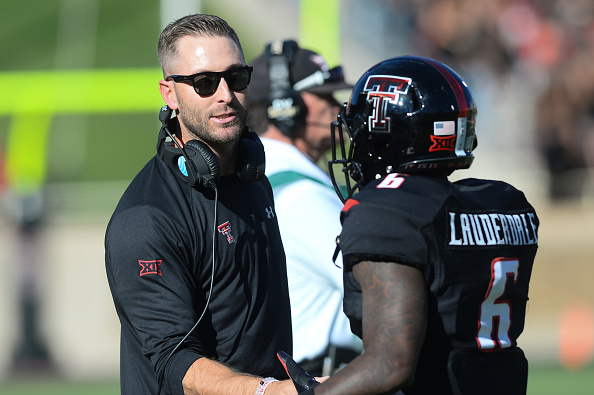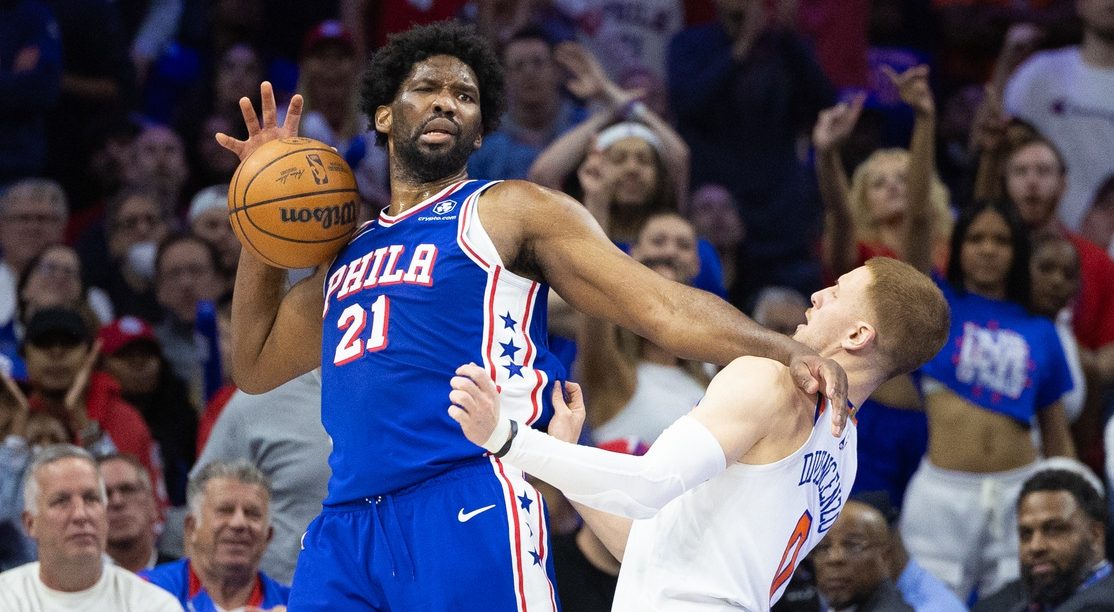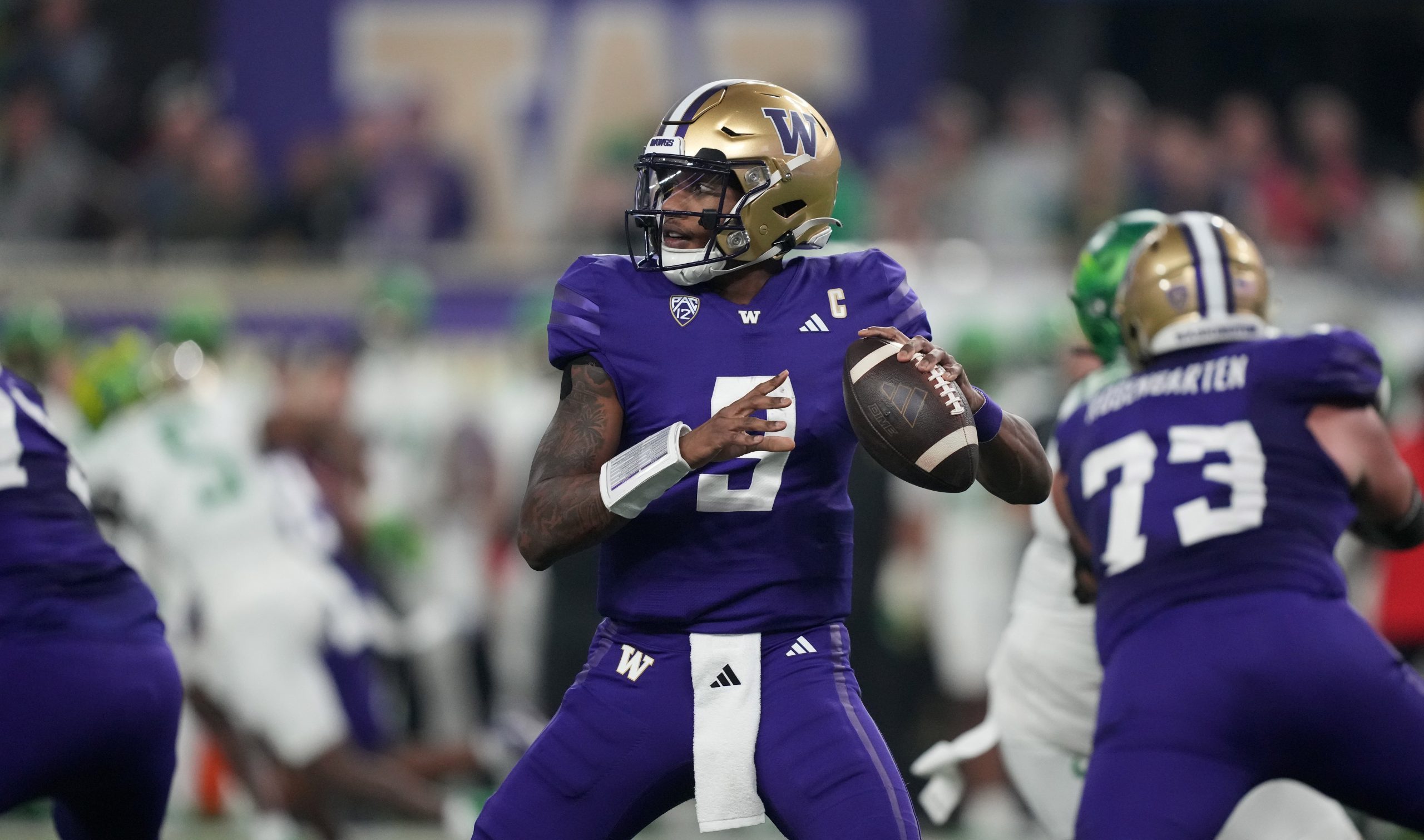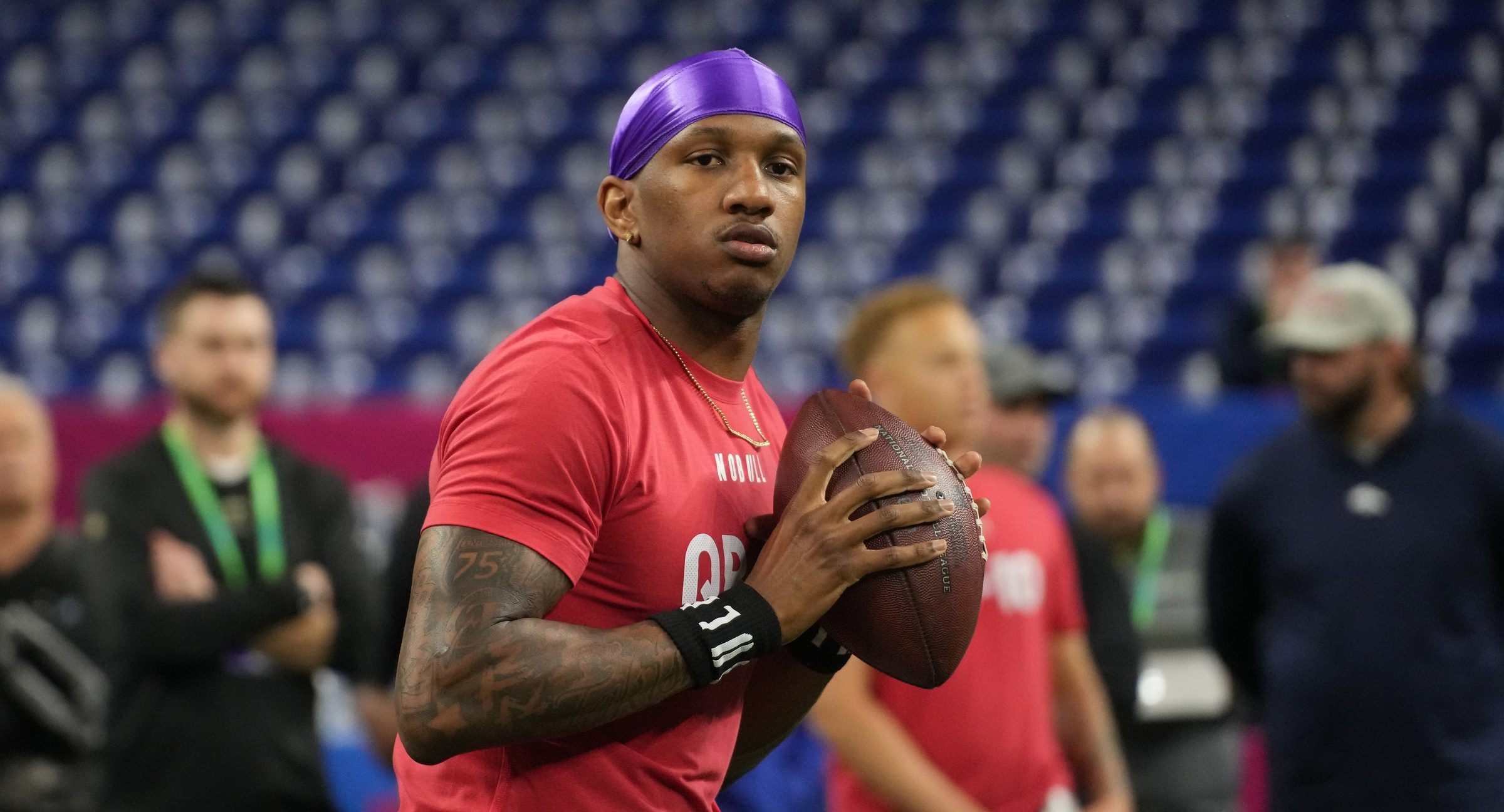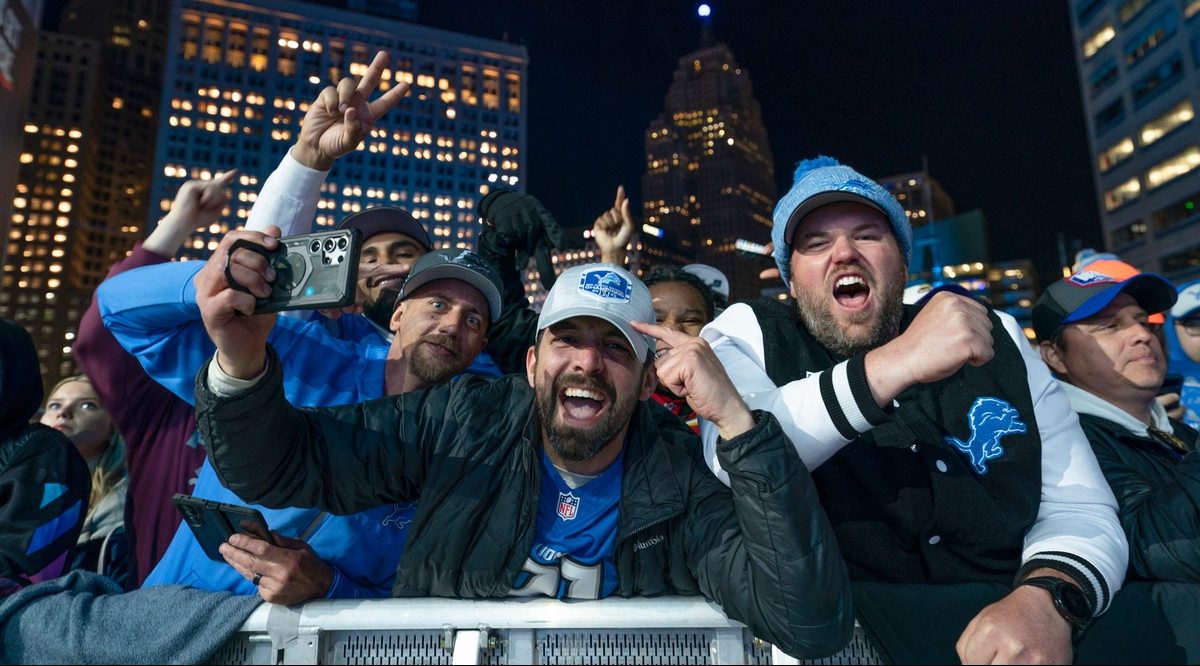The modern era of Texas Tech Red Raiders football began in the year 2000, with the hire of Mike Leach. Leach was a Hal Mumme disciple, utilizing key elements of former BYU head coach LaVell Edwards’s pass-centric offense to help form the modern Air Raid.
His introduction of these concepts took a few years to translate into greater team success at Texas Tech. But once they caught on, the Red Raiders were off and running in the Big 12 — and would remain a factor until Leach’s dismissal in 2009.
A short stint by Tommy Tuberville would serve as a bridge for Tech from Leach to fellow Air Raid believer Kliff Kingsbury. Kingsbury was Leach’s first quarterback at Texas Tech, and served as a bit of a proof of concept in those early years in Lubbock. When he graduated in 2002, he was top-five on the career passing yards list with 12,429 over the course of his college career. Since then, passing games have exploded (in part due to his and Leach’s success), and Kingsbury now sits all the way down at 25th on the all-time passing yards list.
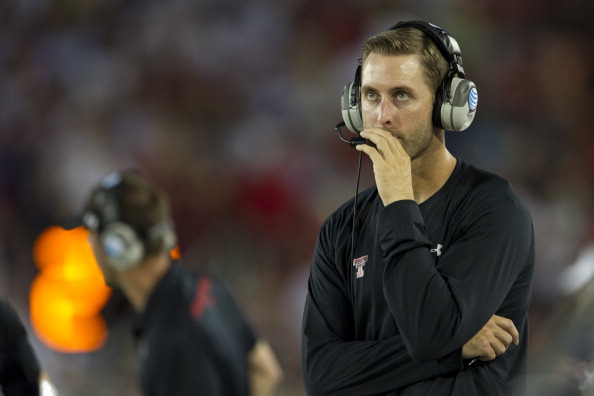
Taking his first head coaching job at his alma mater, the expectation was a whole lot more of the same Air Raid-led success. After Kingsbury’s playing career wrapped up, Leach and the Red Raiders became a fixture in the Top 25, finishing an impressive 12th in 2008 following an 11-2 season. The fast-paced football continued under Tuberville, but the rankings failed to keep up. So the thought was that Kingsbury would pick up right where Leach had left off.
That hasn’t necessarily been the case.
Kingsbury started in 2013 by replicating Tuberville’s 8-5 finish the year before, but improved the team’s total offensive ranking (from 13th to eighth). The offense has continued its ascension — slight drop to 10th in 2014, then second in 2015 before a top-ranked attack in 2016 — but the defense hasn’t followed along the same line. Tech has actually finished bottom-five in total defense each year from 2014 through 2016. The Red Raiders have allowed 41 points or more in each of those three seasons as well.
Despite the high-flying offense (meeting, if not exceeding the standard Leach put into practice), the defense has crippled the team’s ability to win any game. Last year’s 5-7 campaign featured eight different games where TTU scored 38 points or more. Of those, they lost five. They allowed 40 or more points eight different times.
And that’s arguably not even the worst defense this program’s had under Kingsbury. The 2015 team allowed 77 touchdowns — more than any team in a single season since North Texas (78) in 2008.
https://www.youtube.com/watch?v=r80Cdp9lrjs
While Kingsbury’s created an offensive scheme that is almost impossible to stop, his defense has proven it’s almost impossible for it to stop anyone in kind. First-round picks like Patrick Mahomes are nice. But having that sort of talent under center is all for naught when he’s forced to throw six or seven touchdowns week-in and week-out.
When he was at Texas Tech, Leach obviously emphasized offense, though his best teams featured at least average defenses as well. The 2008 team had a top-80ish defense. The 2009 team was actually top-30. Washington State’s recent bounce-back under Leach has been led by a similar resurgence on the other side of the football.
Kingsbury, to this point, hasn’t proven he can hire defensive coaches or cultivate success on defense, which is where the problems have centered for a team that’s missed a bowl in two of the last three years. Now, given his steep salary (nearly $4 million per year) and the Big 12’s overall need for defensive improvement, the favored son needs to show he’s worth it.
Texas Tech doesn’t need to compete for a conference title right away. Or even win a bowl game. But replacing a star (Mahomes) at quarterback puts the spotlight on Kingsbury’s ability to coach, on both sides of the football. Can he once again repeat the success he’s experienced with Mahomes and Davis Webb (both drafted in 2017) under center? And most importantly: Can he do anything at all to repair a bottom-dwelling defense?
That second question will ultimately determine his fate as the Red Raiders head coach. As Air Raid, up-tempo and spread offenses have grown into the mainstream of college football, it’s proven less and less difficult to hire a coach to run those sorts of systems. If you want one installed, there’s a coach for it. What separates them from one another is their ability to hire a quality staff around them, especially on the defensive end, where they’ll automatically be susceptible to some struggles.
Depending on who you ask, Kingsbury could very well be on the hot seat if he can’t at least get back to six wins/show some defensive improvement this season. Though the odds would seem to be against him while replacing Mahomes, this season still becomes the test of Kingsbury’s quality as a coach. If he can display marginal improvement despite the roster turnover, then he and the system stay in place in Lubbock, Texas.
But if not? Is it time to hit reset on the plan at TTU after a couple decades going down the same road?
The nature of football in the state of Texas says no, the Air Raid will have to be part of what you do, locking the Red Raiders into this system like it or not. But perhaps if Kingsbury fails to find success, it’s time to leave the Leach tree. Tuberville worked, however he found a new (temporary) home in Cincinnati of his own accord. If they are moving on from Kingsbury, there are young and rising options. And some older and known quantities could be available, too (Chad Morris?).
That sort of talk is for the offseason, however. For now, Kingsbury gets one more chance to prove he’s a coach and not just a player repeatedly mashing buttons on the five-wide passing play, and nothing more.

